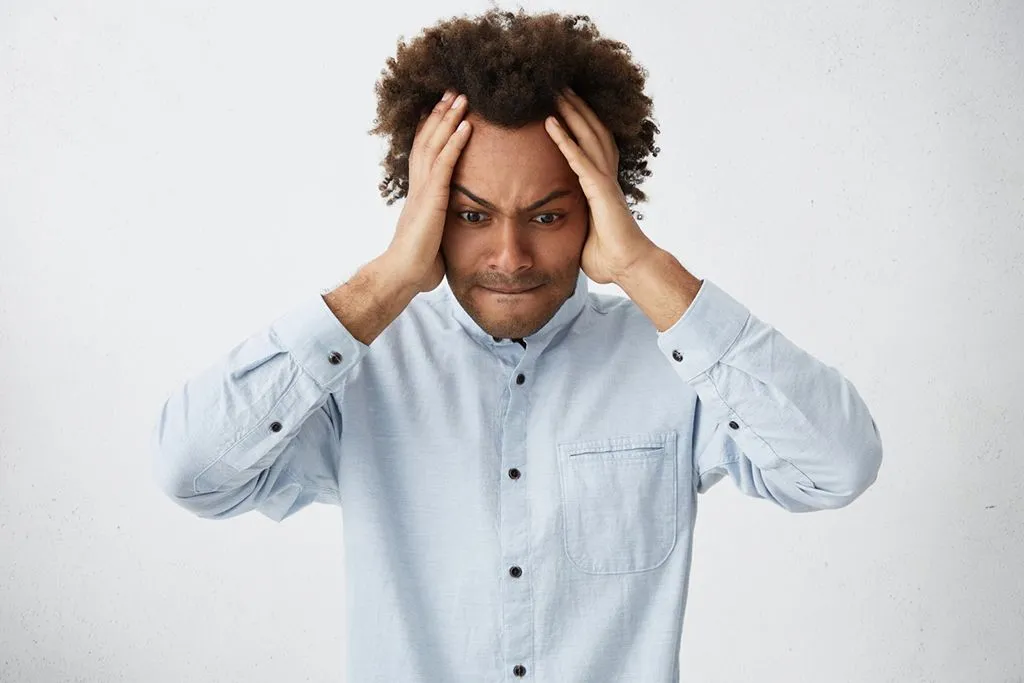Learn About Anxiety Research Studies
What Are Anxiety Research Studies?
Anxiety is a mental health illness that causes an individual to remain in a constant state of worry. Those affected might feel nervous, stressed, and irritable. The perpetual feeling of dread often takes a toll on the body resulting in fatigue and health issues.
There are five main categories of anxiety disorders:
- Generalized Anxiety Disorder (GAD) - A disorder where anxiety disrupts daily life by making it challenging for affected individuals to stay focused and relaxed. It can have a debilitating impact on the individual’s life.
- Social Anxiety Disorder (SAD) - An uncontrollable feeling of self-consciousness arises in social situations. People with anxiety may feel nervous, embarrassed, and fearful of making mistakes in public.
- Panic Disorder - A form of anxiety where people might experience frequent panic attacks in non-threatening situations. Symptoms include a racing heartbeat, chest pain, trembling, and feeling out of sorts.
- Obsessive Compulsive Disorder (OCD)- It’s a mental health illness where people with OCD obsess over routines and recurrent and unwanted thought patterns and are often compelled to repeat specific actions/behaviors.
- Post-Traumatic Stress Disorder - An anxiety disorder that develops in the aftermath of a traumatic life event during military combat, physical/sexual assault, natural disasters, accidents, or other situations. Environment triggers or similar events can cause them to relive the event, experience nightmares, or sometimes cause a panic attack.

Anxiety research studies help medical professionals study these disorders' causes and symptoms closely. They involve clinical trials to determine the effect of new or current interventions, medications, and alternative therapies. Additionally, observational and diagnostic studies are also conducted to increase the chances of early detection and reduce health risks.
Why Is Anxiety Being Studied in Research Studies?
Anxiety disorders are relatively common in America, with over 6.8 million people affected by a generalized anxiety disorder. However, only 43.2% of these individuals receive proper treatment for their symptoms. Lack of awareness, social taboos around mental health illnesses, and inaccessibility to healthcare services are reasons for this gap.
Apart from psychological symptoms, untreated anxiety can increase health risks such as diabetes, cardiovascular problems, gastrointestinal issues, and substance abuse.
Anxiety research studies are the key to developing and improving treatments for the disorder. Everything medical professionals know today results from extensive research and development by researchers, pharmaceutical companies, psychiatrists, and healthcare professionals. Therefore, these studies are crucial in identifying environmental, genetic, and physiological factors that cause the disease and knowing how to use medical interventions to treat it.
What Are Some Treatments Available for Anxiety Disorders?
Anxiety research studies have led to the effective implementation of the following treatments and interventions. They cover all five anxiety disorders and associated mental health issues such as stress, insomnia, cognitive impairment, etc.

Here’s an overview of the most common anxiety treatments:
- Cognitive Behavioral Therapy (CBT). This form of psychotherapy uses constructive strategies to counter regressive thought patterns and limiting beliefs caused by anxiety. Effective treatment can help people with anxiety to manage symptoms better and ensure everyday stressors don’t inhibit their functionality and cognitive capabilities.
- Exposure Response Prevention. This type of psychotherapy helps patients with social anxiety or phobias (such as agoraphobia and claustrophobia) to develop a positive response to triggers (or fears) through a proactive approach. Breakthrough in anxiety research studies has led to the integration of virtual reality tools to create the right environment for individuals with anxiety. These VR simulation situations help them experience anxiety-causing scenarios virtually and build coping mechanisms to counter them. That way, these people are less likely to have anxiety attacks in real-life situations.
- Medications: Approved medication for anxiety includes drugs such as azapirones (buspirone), antipsychotics, Alpha and Beta-blockers (clonidine and propranolol), Selective Serotonin Reuptake Inhibitors (SSRIs), GABA medication (pregabalin, benzodiazepines, gabapentin), Serotonin-norepinephrine Reuptake Inhibitors (SNRIs), Mixed Antidepressants (mirtazapine), and antihistamines ( hydroxyzine).
- Complementary and Alternative Treatments. Lifestyle changes and self-help strategies such as meditation, yoga, and aerobic exercise can help manage anxiety symptoms better.
- Transcranial Magnetic Stimulation (TMS). Doctors target a specific part of the brain using an electromagnetic current to alter signals and reduce regressive thought patterns. TMS has proven to be a noninvasive and effective intervention for patients with anxiety disorders in cases where medication doesn’t work.
Overall, there are two primary treatments for anxiety, medication, and psychotherapy. Researchers are constantly exploring ways to make these treatments work more effectively and efficiently to provide patients with comfort and limit health concerns.
Combining these approaches helps treat comorbid mental health illnesses, including anxiety disorders and related issues. Anxiety research studies are continuously helping medical practitioners develop new drugs and treatment strategies to help people live happily and fulfilled despite their diagnoses.
What Are Some of the Breakthrough Anxiety Research Studies?
Recent development in anti-anxiety medication and treatments cover diverse grounds. Researchers are exploring advanced technology, alternative remedies, and safe drugs to help diagnosed patients feel relaxed and cope with symptoms.
The following anxiety research studies create a foundation for future treatments:
2018: Virtual Reality Therapy Exposure Therapy (VRET) for Anxiety studied 30 trials that used VRET to treat various anxiety disorders. Researchers in each trial used virtual environments to expose participants to their fears and help them conquer phobias, such as fear of flying, agoraphobia, and social anxiety. The meta-review concludes that VR is an “effective and equal medium” for exposure therapy in patients with anxiety. These anxiety research studies emphasize integrating advanced technology to execute safe and effective interventions in psychotherapy.
2019: Classical Psychedelics for Anxiety Treatment. Researchers from the Imperial College of London School of Medicine conducted a systematic review to explore the efficacy level of psychedelic-assisted therapy through controlled doses of lysergic acid diethylamide (LSD), ayahuasca, or psilocybin. Anxiety research studies involved 130 patients and seven clinical trials to determine whether psychedelic interventions were tolerable in patients experiencing mental health issues such as anxiety and depression. Preliminary trials prove a significant impact in reducing and managing symptoms with minimum side effects. Future investigations and interventions can help LSD and other psychedelics improve treatment efficacy in areas where psychosocial and pharmacological treatments show limited outcomes.
2019: Biobehavioral Utility of Mindfulness-Based Art Therapy. The Department of Behavioral Sciences and Social Medicine, Florida State University College of Medicine, studied the influence of Mindfulness-based art therapy (MBAT) and a combination of complementary interventions on adaptive stress response and wellness of people with anxiety (mostly generalized anxiety disorder) and other health conditions. Preliminary research reveals that monitored art therapy can work in adjunct with Cognitive Behavioral Therapy (CBT) to enhance health and wellness in individuals experiencing everyday anxiety or nervousness.
2020: Cannabidiol: A Potential New Alternative for the Treatment of Anxiety. A Neurosciences Institute in Spain explored the therapeutic benefits of Cannabis sativa for patients with mental health disorders. Preliminary trials support the efficacy of CBD in medications and their pharmacological function as antidepressants, anxiolytics, and antipsychotic drugs. They may keep patients calm and relaxed, making it easier to cope with stressors.
2021: Sleep and Anxiety studies the interrelation of chronic sleep deprivation (insomnia) with anxiety disorders. Researchers state that 50% of individuals dealing with anxiety experience sleep problems. The review uses structural and functional imaging studies to trace the brain mechanisms of participants with sleep disorders and anxiety. Results prove that slow-wave sleep therapy through non-invasive and safely administered brain stimulation can effectively reduce symptoms associated with anxiety and sleep disorders.
2021: Yoga Complements Cognitive Behaviour Therapy. The School of Psychology at Deakin University, Australia, conducted a controlled study to assess the impact of using therapeutic yoga as an adjunct treatment to Cognitive Behavior Therapy (CBT). The research aims to enhance CBT benefits through mindful coping strategies. The eight-week program showed significant improvement in anxiety levels after the clinical trial. The results allowed researchers to conclude that the mindful movement and breathing exercises during yoga complemented behavioral strategies taught through CBT. It also improved focus and reduced thought disruption caused by anxiety-ridden thoughts.
2022: Metacognitive Therapy Self-Help for Anxiety-Depression. The American Psychological Association studied the effectiveness of at-home self-help metacognitive therapy (home-MCT) for rehabilitating cardiac patients experiencing depression and anxiety. The treatment proved practical and feasible, with a positive response from trial participants. Furthermore, home-based interventions reduce the barriers some patients might experience when they don’t have access to inpatient and in-person therapy.
2022: Ketamine for Treatment. The study uses clinical trials and observational studies to assess the benefits of using racemic ketamine and esketamine to treat depression and similar mood disorders. Since anxiety and depression coexist, the study also probes the advantages of using the antidepressant to manage nervousness, sadness, and other anxiety symptoms. FDA has currently approved variations of esketamine for depression. However, the research review implies that the drug can also benefit anxiety management. Further investigation could result in a breakthrough.
Who Are The Key Opinion Leaders/Researchers/Institutions on Anxiety Research Studies?
Many national and international organizations work diligently to promote effective care and treatment for anxiety disorders.
These are the most renowned institutions:
The Anxiety and Depression Association of America (ADAA) was established in 1980. The nonprofit organization raises public awareness about anxiety and depression to support early detection. Additionally, it’s medical board funds and participates in research studies that can help develop advanced diagnostic tools and treatment techniques to cure anxiety problems in American adults and children.
National Alliance on Mental Illnesses (NAMI) began as a grassroots organization in 1979 and has since expanded to a national scale. Six hundred local affiliates work under NAMI to organize community awareness campaigns and support educational and clinical advancements in treating mental health issues. It focuses on all types of mental health issues. The organization has exponentially increased the accessibility and availability of healthcare resources for affected individuals and families seeking support and help.
American Psychological Association (APA) is a leading scientific organization representing accredited healthcare professionals researching or teaching psychology in the US. With over 133,000 educators, researchers, clinicians, students, and consultants affiliated with the organization, it effectively uses interdisciplinary expertise to find answers to underlying psychological issues, including anxiety disorders.
Dr. Joseph F. McGuire is the director and founder of a research and intervention program at John Hopkins University called the Center for OCD, Anxiety, and Related Disorders for Children (COACH). His research interests include implementing translational approaches to study and improve positive therapeutic outcomes in children and teenagers experiencing mental health disorders such as anxiety and OCD. Dr. Joseph was the leading spokesperson from JHU who raised awareness about post-pandemic anxiety in young children and teens.